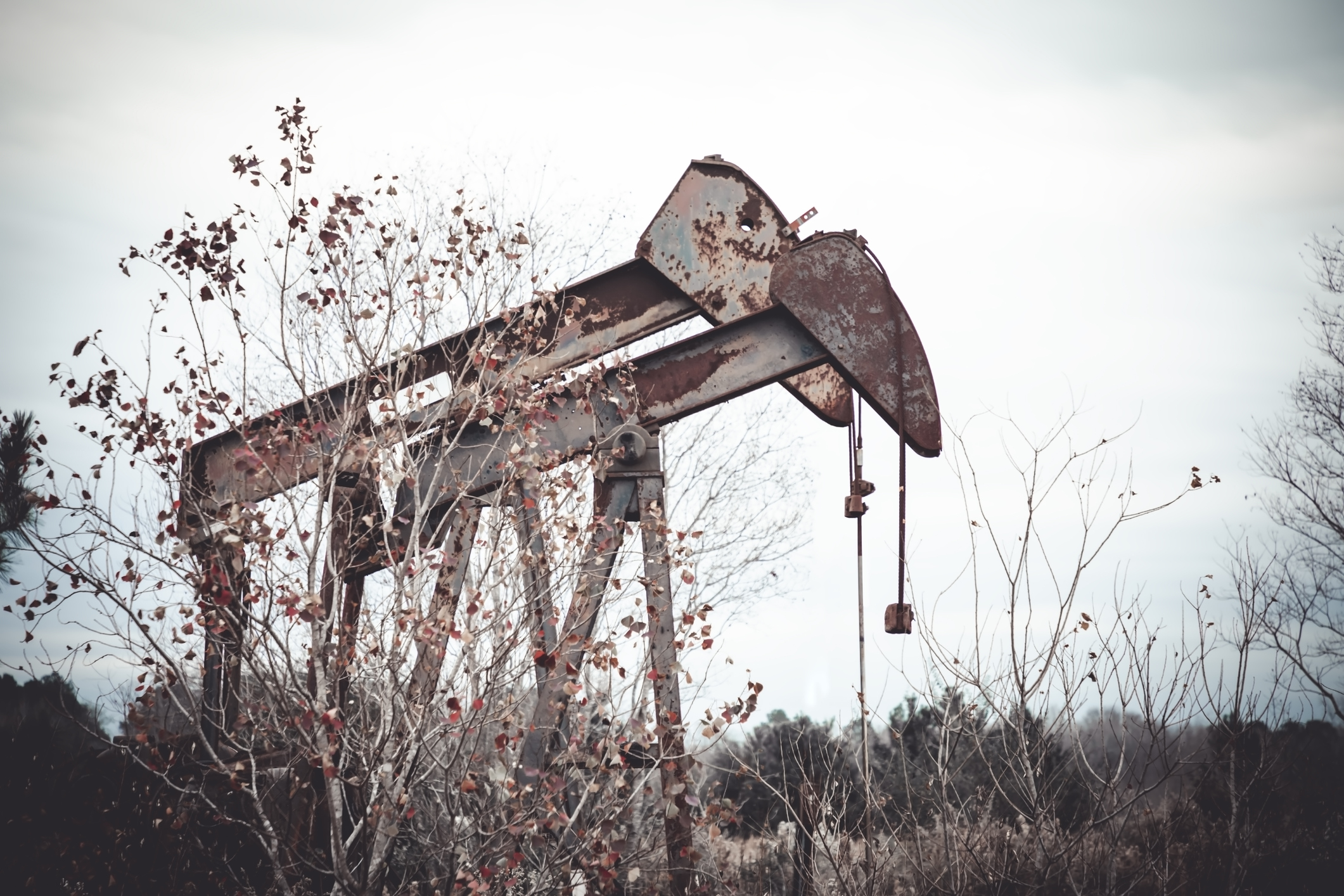The Slick
Pennsylvania Bill Jeopardizing Millions in Oil Well Cleanup Funding to Be Passed by Governor, Say Sources
The industry-backed bill proposes to freeze the bond amounts that fossil fuel companies are required to put up.

A bill that could jeopardize millions of dollars in federal funding to clean up Pennsylvania’s orphaned and abandoned wells by freezing the bond amounts that oil and gas companies are required to put up — and potentially render the state’s well crisis “all but permanent” — now sits on the desk of Gov. Tom Wolf, who sources say is planning to allow it to pass into law today. As part of a deal with Republican lawmakers to increase funding for education in the state, Wolf is expected to pass House Bill (HB) 2644, which is widely opposed by environmentalists and could make it much more difficult to plug thousands of wells that are leaking methane, an environmental hazard, in many communities around the state.
The legislation, which was introduced on June 2 by Rep. Martin Causer, a lawmaker serving oil- and gas-heavy northwest Pennsylvania, lays out a number of provisions for the disbursement of funds the federal government is set to send Pennsylvania via the Infrastructure Investment and Jobs Act (IIJA) for orphaned and abandoned well cleanup. About $40 million in additional federal funding is dependent on states passing stricter bonding regulations.
Join our email list to get the stories that mainstream news is overlooking.
Sign up for Capital & Main’s newsletter.
Tucked into the last three pages of the bill are stipulations that secure the state’s bonding amounts to their current levels ($2,500 per well for conventional wells and $4,000 and $10,000 per well for unconventional wells), which regulators and environmentalists emphasize is well below the true cost of plugging wells. The bill also strips the Environmental Quality Board, an independent body that approves rules made by the Department of Environmental Protection, of its ability to raise these amounts for conventional wells for 10 years.
“There’s no mystery about where this came from,” Dave Hess, former secretary of the DEP and editor of the website PA Environment Digest, told Capital & Main. “Every word was written by the conventional oil and gas industry and given to Rep. Causer.” (This concern is one that Rep. Greg Vitali (D-166), minority chair of the House Environmental Resources and Energy Committee, raised on June 7, when the bill passed in his committee before going to the House floor for a vote.) A spokesperson for Causer did not return requests for comment.
HB 2644 passed the legislature a little over a month after its introduction. And sources who spoke to Capital & Main on background say that, despite opposition from House and Senate Democrats, the governor’s office will allow the bill to become law after making a deal with a group of Republican lawmakers in exchange for additional education funding in the state budget, which passed on July 8.
In the state of Pennsylvania, the executive branch can respond to bills that pass the legislature in one of three ways: signing them, vetoing them or allowing them to sit idle for 10 days, at which point they are automatically passed into law.
Wolf is planning to take the latter approach, say sources close to budget negotiations.
Pennsylvania has some 300,000-500,000 orphaned and abandoned wells, the majority of which regulators have not identified.
The governor has already responded to a number of bills that passed session earlier this month, including climate-related Senate Bill 275, legislation that would have banned Pennsylvania municipalities from restricting utilities based on energy type, which he vetoed. Wolf’s silence on HB 2644 is only growing more deafening as the deadline to act on the legislation — midnight on Monday, July 18 — nears. Governor Wolf’s office did not respond to an official request for comment on the record by publication time.
Senate Majority Leader Kim Ward (R-39) was instrumental to the deal made in exchange for HB 2644’s passage, say sources close to the budget negotiations. Ward’s son, Mike Ward, is a registered lobbyist for Cameron Companies and his own lobbying firm, Catalyst Strategic Solutions, where his clients include the Pennsylvania Grade Crude Oil Coalition, a trade group representing the commonwealth’s conventional oil industry, and Energy Systems Group, an Indiana-based energy services provider, state lobbying records show.
Sen. Ward’s team did not respond to a request for an on–the-record comment by publication time, though her office was vocal in the days leading up to the passage of the state budget, stating that negotiations had been “deteriorating.”
In most states, when oil and gas operators apply for a well permit, they are required to put up a bond; should they decide a well is no longer lucrative and abandon it, they forfeit this bond to the state, which can then use that money to clean up the well. In Pennsylvania, however, bonding amounts, set between $2,500 and $10,000 per well, are a fraction of the true cost of well plugging — $68,068 per well on average, according to the Department of Environmental Protection.
That’s left the state with some 300,000-500,000 orphaned and abandoned wells, the majority of which regulators have not identified — they leak methane into the air, and, as Capital & Main previously reported, have polluted Pennsylvanians’ water and even caused houses to explode.
Cementing bonding rates at their current numbers could jeopardize Pennsylvania’s eligibility for additional federal funding via the Infrastructure Investment and Jobs Act.
Representatives of the oil and gas industry and legislators who’ve accepted donations from them have worked hard to keep bonding rates low, as reported earlier this year by Capital & Main. While these efforts have cut down on production costs for operators, environmentalists say they only push well cleanup costs on to taxpayers. Hess, who calculated more than 4,270 notices of violation issued to Pennsylvania oil and gas producers for abandoning wells over the last six years, says the practice is “pervasive” in the conventional oil and gas industry.
“It’s just unconscionable that we would not hold people responsible for cleaning up their own messes,” said Rev. Mitchell Hescox, president-CEO of the Evangelical Environmental Network.
The bill would also prevent the Pennsylvania Environmental Quality Board from passing a petition from six environmental groups to raise bonding amounts to $38,000 for conventional wells. That petition, and another one that would raise bonds for unconventional wells to $83,000, have yet to be voted on by the EQB. Should HB 2644 be passed into law, the petition for conventional bonds won’t get the chance.
“Although this bill guts our petition to address conventional bond amounts and asset abandonment, we will be continuing to pursue all avenues to leave a better legacy for Pennsylvanians than the one the oil and gas industry leaves us to clean up,” said Kelsey Krepps, senior campaign representative for the Sierra Club, one of the authors on the petitions, in an email to Capital & Main.
Cementing bonding rates at their current numbers could also jeopardize Pennsylvania’s eligibility for additional federal funding via the Infrastructure Investment and Jobs Act that’s allocated to states that pass stricter bonding regulations, potentially harming Pennsylvania’s chances of receiving an additional $40 million in regulatory improvement grants for well plugging.
“We can’t take advantage of that once-in-a-generation money for well plugging because of the greed of the conventional oil and gas wells [companies] and their owners and their politicians,” Hess said. “That would be a huge disappointment for Pennsylvania.”
Copyright 2022 Capital & Main
-

 California UncoveredApril 9, 2024
California UncoveredApril 9, 2024700,000 Undocumented Californians Recently Became Eligible for Medi-Cal. Many May Be Afraid to Sign Up.
-

 Feet to the FireApril 22, 2024
Feet to the FireApril 22, 2024Regional U.S. Banks Sharply Expand Lending to Oil and Gas Projects
-

 Class WarMarch 26, 2024
Class WarMarch 26, 2024‘They Don’t Want to Teach Black History’
-

 Latest NewsApril 10, 2024
Latest NewsApril 10, 2024The Transatlantic Battle to Stop Methane Gas Exports From South Texas
-

 Latest NewsApril 23, 2024
Latest NewsApril 23, 2024A Whole-Person Approach to Combating Homelessness
-

 Latest NewsMarch 27, 2024
Latest NewsMarch 27, 2024Street Artists Say Graffiti on Abandoned L.A. High-Rises Is Disruptive, Divisive Art
-

 State of InequalityApril 11, 2024
State of InequalityApril 11, 2024Dispelling the Stereotypes About California’s Low-Wage Workers
-

 Latest NewsApril 24, 2024
Latest NewsApril 24, 2024An Author Reflects on the Effort to Rebuild L.A. After the ‘Violent Spring’ of 1992




















